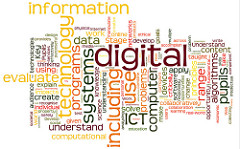The
world has never been more connected than it is today. Indeed, through
new technologies and the use of internet it is now possible to
communicate with everyone at a global level in just few seconds,
making appear our world very small. But this is not valid for
everyone.
As
recently stated by the International Telecommunications Union (ITU) -
the United Nations (UN) specialized agency for Information and
Communication Technologies (ICTs) – there are four billion people
in the developing countries that are still unconnected because they
have no internet access. Consequently, this data points out that more
than a half of the world population is totally excluded from this
interconnected world and that digital divide still remains a core
issue to solve.
With
the aim to discuss about this topic, on the 17th
of November 2015, a seminar was organized at the European Parliament
(EP) by the Member of the European Parliament (MEP) Marietje Schaake
on behalf of the Digital Agenda Intergroup, an informal network of
MEP's, cross-party and cross-nationality interested in digital
technologies and their role in bringing benefits to society. The
seminar, entitled “Tech for change: ICT's, internet access and the
post-2015 development agenda” and led by speakers from different
organizations, initially was focused on the importance of making more
efforts to improve the openness and accessibility of internet.
In
this regard, Samia Melhem, as a Lead Policy Officer in the World
Bank's Transport and ICT Global Practice, highlighted that ICTs can
have an important role in supporting public sector transformation,
innovation and in improving health and education services. Having the
goal of ending extreme poverty and boosting a shared prosperity
worldwide, the World Bank sees ICTs as a fundamental tool for
transformation. Particularly, she emphasized the efforts made by her
Institution to promote e-government, that consists in the use of
digital technologies in public administration to foster public
services and democratic processes. For this reason she underlined the
necessity to promote broadband in every household and reduce
disparities in digital access.
